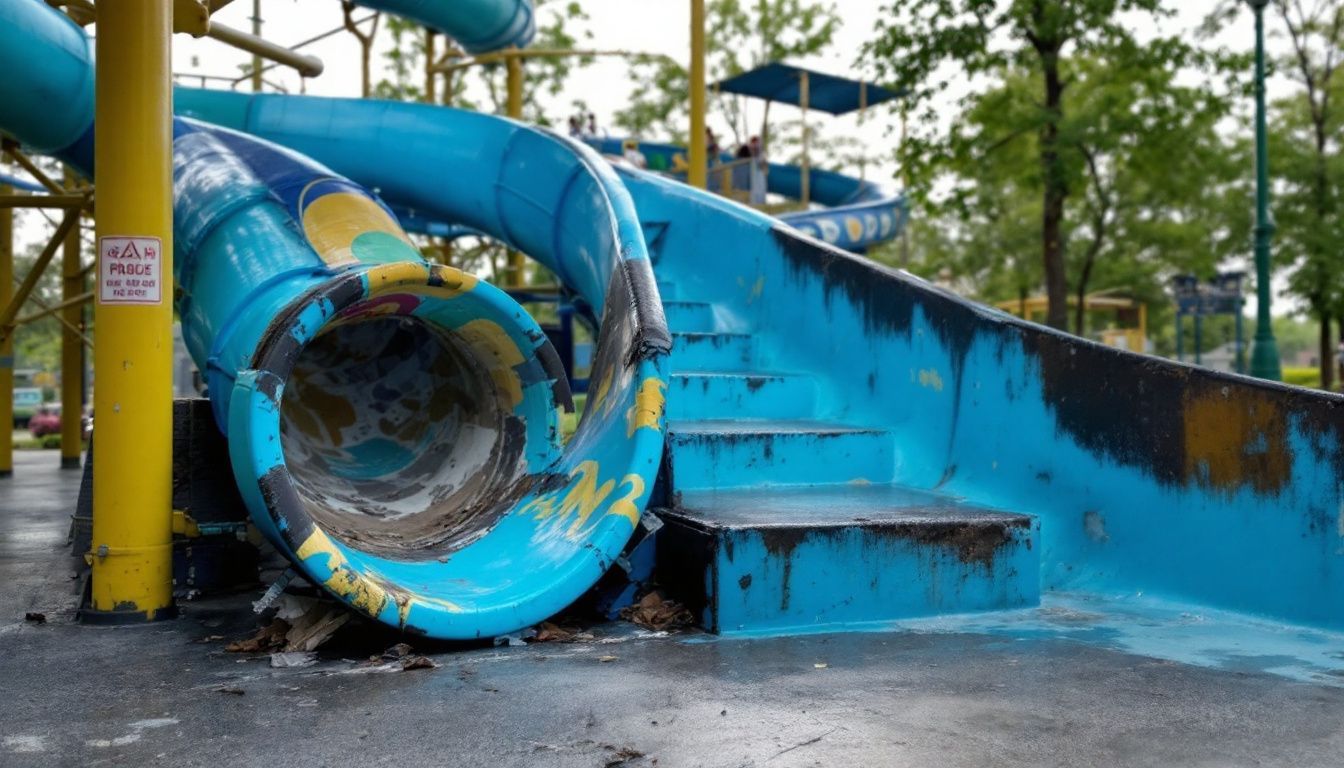Water park injuries can ruin a fun day out. Each year, many people get hurt at these parks. Filing a claim for water park injuries requires proper documentation. This guide will help you understand the process.
Key Takeaways
- Quick action after a water park injury is crucial. Seek medical help, report the incident, gather witness info, and take photos of the scene.
- Essential documents for a claim include incident reports, medical records, photos, witness statements, and proof of expenses related to the injury.
- Water parks have legal duties to maintain safe facilities, post warnings, and provide proper staffing. Failing these can lead to liability for injuries.
- Personal injury lawyers can help navigate the claim process, deal with insurance companies, and decide between settling or going to court.
- Prompt and thorough reporting, along with comprehensive medical records, can significantly strengthen a water park injury claim.
Immediate Steps After an Injury

Injuries at water parks can happen suddenly. Quick action after an accident is crucial for your health and potential legal claims.
- Seek medical help right away. Park staff should offer first aid. Accept their help, but also get checked by outside doctors.
- Report the incident to park officials. Give them a brief, honest account of what happened. Avoid long talks or admitting fault.
- Collect contact info from witnesses. Ask for names and phone numbers of people who saw your accident.
- Take photos of the accident scene. Capture images of where you got hurt and any unsafe conditions.
- Keep your park entry ticket and receipts. These prove you were at the park on the day of your injury.
- Write down what happened as soon as you can. Include details about the time, place, and how you got hurt.
- Save all papers from the park about your accident. This includes incident reports or waivers they ask you to sign.
- Get copies of your medical records. Ask for all test results, doctor notes, and treatment plans.
- Track your expenses related to the injury. Save bills for medical care, travel costs, and missed work days.
- Contact a personal injury lawyer for advice. Many offer free talks to review your case.
These steps help build a strong case if you need to file a claim. Next, we’ll look at the key documents you’ll need for your claim.
Essential Documentation Needed
After taking immediate steps following a water park injury, gathering essential documentation becomes crucial. Proper records strengthen your claim and increase your chances of fair compensation. Here’s a list of vital documents you’ll need:
- Incident report: File an official report with the water park management detailing the accident.
- Medical records: Collect all documents from your doctor visits, including diagnoses and treatment plans.
- Photographs: Take clear pictures of your injuries and the accident scene for visual evidence.
- Witness statements: Get contact information and written accounts from people who saw the incident.
- Personal injury journal: Keep a daily log of your symptoms, pain levels, and recovery progress.
- Medical bills: Save all receipts for treatments, medications, and related expenses.
- Pay stubs: Gather proof of lost wages if you missed work due to your injuries.
- Insurance documents: Compile all correspondence with insurance companies about your claim.
- Expert testimonies: Obtain statements from specialists who can explain complex injury aspects.
- Water park safety records: Request copies of the park’s maintenance and inspection logs.
Reporting the Incident
Reporting the incident to water park staff is crucial. Tell a staff member about your injury right away. Ask for the manager on duty and explain what happened. Request an incident report form and fill it out completely.
Include all details about the accident, such as time, location, and how it occurred.
Make sure to get a copy of the incident report for your records. This document serves as proof that you reported the injury. It may help your case if you decide to file a claim later.
Don’t forget to collect contact information for any witnesses. Their statements could support your account of the incident.
Prompt and thorough reporting can make or break a personal injury claim. – Legal Expert
Medical Records and Bills
After reporting the incident, gather your medical records and bills. These documents form the foundation of your claim. They prove your injuries and show the costs you’ve faced. Collect all papers from doctors, hospitals, and other health providers.
This includes test results, prescriptions, and treatment plans. Keep a file of every bill related to your injury. Don’t forget receipts for medicines or medical equipment you bought.
These records help show the full impact of your accident on your health and finances.
Your medical records also tell the story of your recovery. They track your progress and any lasting effects from the injury. Insurance companies and courts use this information to decide on compensation.
Make sure to get records from all follow-up visits too. If you miss work due to your injury, get a doctor’s note. This helps prove lost wages in your claim. Comprehensive records strengthen your case for fair compensation.
Witness Statements
Witness statements play a key role in water park injury claims. They offer vital proof of negligence and safety issues. Bystanders can describe what happened before, during, and after an accident.
Their accounts help build a strong case by backing up your version of events. It’s crucial to get names and contact details of witnesses right after an incident occurs.
A personal injury attorney can help gather formal witness statements. These statements become important documents in your claim. They can reveal safety violations or risky conditions at the park.
Expert witnesses may also provide testimony about park safety standards. Their input can strengthen your case and increase your chances of fair compensation.
Additional Information on Filing a Claim
Filing a claim needs more than basic facts. You’ll want photos, expert opinions, and proof of the park’s safety rules. Learn how to build a strong case and protect your rights.
Importance of Photographic Evidence
Photographic evidence plays a vital role in water park injury claims. Pictures capture injuries at their worst, showing the full extent of harm. These images create a strong impact on judges and juries, often leading to more empathy for victims.
Clear photos can also help secure fair settlements, as they provide solid proof of injuries.
Lack of photos might lead to claims of exaggeration by the opposing side. To avoid this, victims should document their healing process with regular pictures. This visual timeline strengthens the case by showing the injury’s progression over time.
Good photographic evidence can make a big difference in the outcome of a personal injury claim.
Role of Expert Testimonies
Expert witnesses play a crucial role in personal injury trials. They bring specialized knowledge to the courtroom, helping juries and judges understand complex issues. These experts explain how injuries happened and assess the damages.
Their clear communication skills are vital for conveying findings to the court.
Objectivity is key for expert testimonies in water park injury cases. Impartial experts guide juries toward informed decisions. They shed light on technical aspects of accidents, like equipment failures or safety violations.
Their input often proves decisive in determining fault and compensation amounts.
Legal Obligations of Water Parks
Water parks must follow strict legal duties to keep visitors safe. Park owners must maintain their facilities and remove any dangers. They need to post clear warning signs about risks.
The law requires parks to have enough staff for proper supervision. This helps prevent accidents like drownings. Parks must also do regular safety checks to spot and fix potential hazards.
Failing to meet these obligations can lead to serious injuries and legal trouble for the park.
Proper staffing is crucial for water park safety. Parks must hire and train enough lifeguards and supervisors. These workers watch over guests and respond quickly to emergencies. They also enforce rules to prevent risky behavior.
Without adequate staff, parks may face lawsuits if someone gets hurt. Courts often view poor supervision as negligence. This makes parks liable for injuries that proper staffing could have prevented.
Understanding Your Rights: Comparing Water Park and Ski Resort Liabilities
Understanding your rights at water parks and ski resorts is crucial for visitor safety. Both venues have different liability rules that affect injury claims. Here’s a comparison of water park and ski resort liabilities:
| Aspect | Water Parks | Ski Resorts |
|---|---|---|
| Inherent Risks | Slips, falls, drowning | Falls, collisions, avalanches |
| Liability Waivers | Often required, may limit claims | Common, can restrict legal action |
| Duty of Care | High – must ensure safe equipment and premises | Limited – skiers assume some risks |
| Negligence Claims | Easier to prove if park fails safety standards | Harder to prove due to assumed risks |
| Safety Regulations | Strict oversight by health departments | Varied state laws, some federal guidelines |
| Age Restrictions | Often have height/age limits for rides | Few age limits, focus on skill levels |
| Equipment Maintenance | Daily checks required for most attractions | Regular grooming and lift maintenance needed |
This comparison helps visitors understand their rights and venue responsibilities. Know these differences to stay safe and informed at either location.
Consultation with a Personal Injury Attorney
Talking to a personal injury lawyer can boost your chances of getting fair pay for water park injuries. These experts know the ins and outs of injury claims and can guide you through the legal maze.
They’ll help you gather proof, talk to witnesses, and figure out how much money you should ask for. A good lawyer will make sure you file your claim on time and don’t miss any key steps.
Legal pros can also deal with tricky liability issues that often come up in water park cases. They’ll fight for your rights and push back against unfair tactics from insurance companies.
With a skilled attorney on your side, you’re more likely to get the money you need for medical bills and other costs. Next, let’s look at whether to settle or go to court for your water park injury claim.
Settlement vs. Lawsuit: What to Consider
After consulting with a personal injury attorney, you’ll need to decide between settling or filing a lawsuit. Settlements often result in quicker payouts and avoid lengthy court battles.
They also keep details private and reduce legal fees. Lawsuits, on the other hand, may lead to larger awards if you win. They also create public records of the incident, which could prompt safety changes at water parks.
Your choice depends on factors like injury severity, evidence strength, and the park’s liability. A skilled lawyer can help weigh these options. They’ll consider medical expenses, lost wages, and pain levels to determine fair compensation.
Your attorney may also factor in the statute of limitations and potential jury reactions. Ultimately, the decision rests on your specific case details and personal preferences.
Conclusion
Filing a water park injury claim requires careful steps and proper documentation. Gathering evidence, reporting the incident, and seeking medical care are essential. Legal help can guide you through the process and protect your rights.
It’s important to act quickly and keep all records related to your injury. With the right approach, you can pursue fair compensation for your water park accident.
FAQs
1. What documentation do I need to file a claim for water park injuries?
You’ll need medical records, eyewitness accounts, and incident reports. Photos of injuries and the accident scene are crucial. Keep receipts for medical expenses and lost wages. A personal injury law firm can guide you through gathering this evidence.
2. How long do I have to file a claim after a water slide accident?
Time limits vary by state. In Missouri, you have five years for personal injuries. It’s best to seek legal advice promptly. Many personal injury lawyers offer free consultations to discuss your legal rights and the litigation process.
3. Can I sue a water park if I signed a waiver?
Waivers don’t always protect parks from liability. If negligence or faulty equipment caused your injury, you may have a case. An experienced attorney can review the waiver and assess your options. They might identify product liability or health and safety violations.
4. What types of injuries are common in water park accidents?
Common injuries include concussions, broken bones, fractures, and bruises. Serious accidents may lead to emergency room visits. Each case is unique, and the severity of injuries affects the legal process and potential compensation for pain and suffering.
5. How does the “assumption of risk” doctrine affect my claim?
The “assumption of risk” doctrine can impact your case. However, water parks still have a duty to maintain safe conditions. If they fail in this duty, you may have grounds for a lawsuit. A personal injury attorney can explain how this doctrine applies to your situation.
6. What if the accident was partly my fault?
Even if you’re partially at fault, you may still recover damages. Many states use comparative negligence rules. An attorney can explain how these rules might affect your case. They can also help determine the proximate cause of the accident during the discovery phase.
References
- https://dawsonlawfirm.com/what-you-should-do-after-an-amusement-park-injury/
- https://www.forthepeople.com/blog/what-should-i-do-after-water-park-injury-california/
- https://www.dplaw.com/blog/personal-injury-documentation/
- https://www.habbaspilaw.com/whos-responsible-for-a-water-park-accident/
- https://www.spetsasbuist.com/blog/file-injury-claim-amusement-park.cfm
- https://www.spetsasbuist.com/library/water-park-injuries.cfm
- https://resultsyoudeserve.com/blog/can-i-sue-for-a-water-park-injury/
- https://www.colombolaw.com/west-virginia-blog/photographic-evidence-personal-injury-claim/ (2019-11-20)
- https://law-ohio.com/importance-of-photographic-evidence-in-personal-injury-cases/ (2023-06-15)
- https://www.andrewmaze.com/role-of-an-expert-witness-in-personal-injury-trials/ (2024-07-11)
- https://www.levininjuryfirm.com/waterpark-accidents/ (2023-01-10)
- https://www.bergerandgreen.com/blog/waterpark-injuries-what-you-need-to-know/ (2024-06-27)
- https://www.spetsasbuist.com/library/water-park-injury-lawyer.cfm
- https://www.federallawyers.com/water-park-water-slide-accidents-how-to-file-a-lawsuit/

